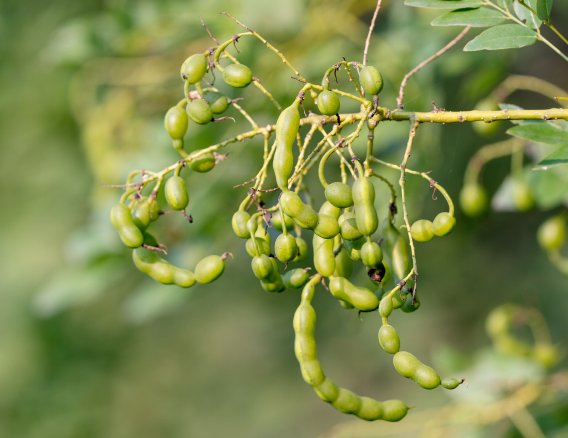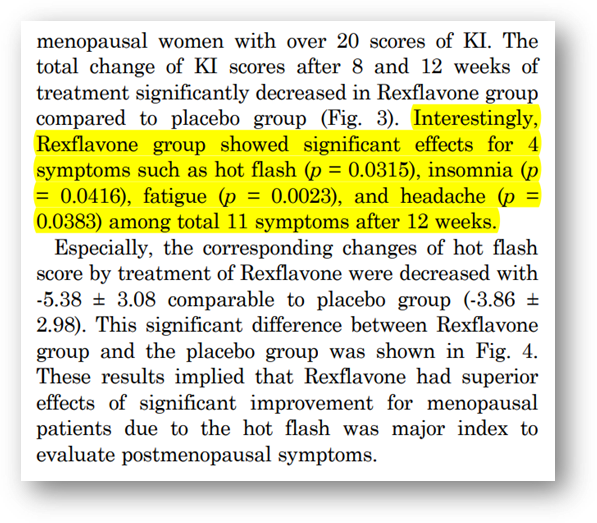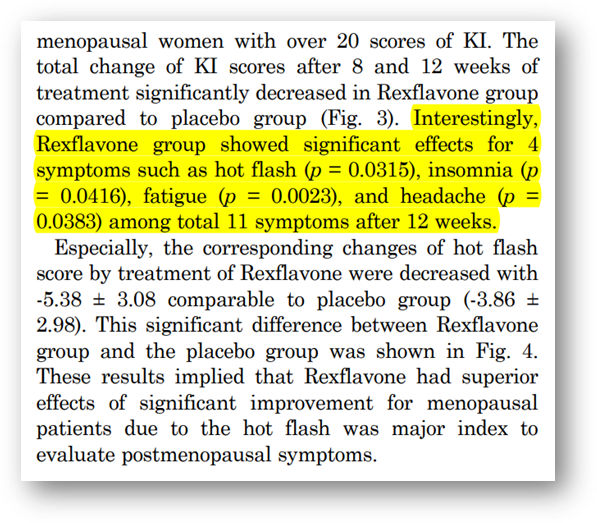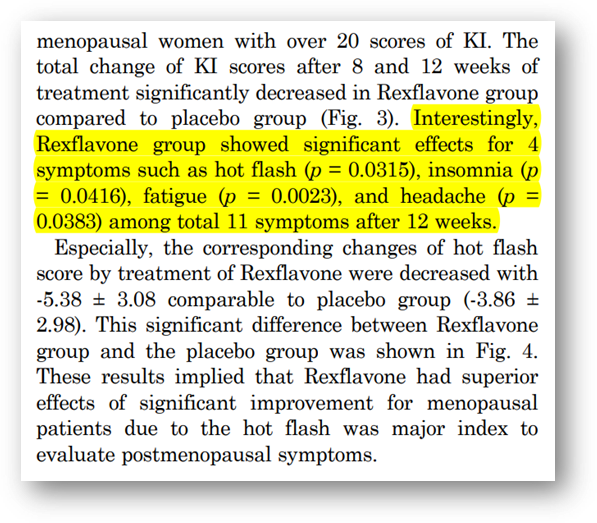hot flashes2. Improves
insomnia3. Reduces headaches

Hello. I'm a pharmacist Jinny.
Today, following isoflavones, I would like to introduce the pagoda fruit, which is attracting attention as a health ingredient for menopausal women. Known as a tree that repels evil spirits, the pagoda tree has long been used as a medicine from its flowers, fruits, and bark. In particular, sophoricosides, which are found in the fruit of the pagoda tree, are also a type of isoflavone, which is similar to the molecular structure of estrogen and is known to help relieve menopausal symptoms.
Today, we will look at a paper that examined the effects of the consumption of pagoda fruit extract on menopausal symptom relief, and see what kind of symptoms it can help to improve symptoms.
Hot flashes are one of the most common menopausal symptoms that many women experience. After menopause, estrogen secretion decreases, and the thermoregulatory function is abnormal, so even a slight increase in body temperature causes vasodilation and hot flashes along with a feeling of body heating.
Studies have shown that when consumed with pagoda fruit, the vesporicosides in the fruit have a similar function to estrogen and reduce the symptoms of hot flashes [1].

"Interestingly, the resplavone group showed a significant effect on 4 of the 11 symptoms after 12 weeks: hot flashes, insomnia, fatigue, and headache."
Another menopausal symptom is insomnia. There are two main reasons why people experience insomnia after menopause. Vasomotor symptoms, such as night sweats, can make it difficult to get a good night's sleep, leading to insomnia. Or, due to a decrease in estrogen secretion, the autonomic nervous system is out of balance, and you feel extreme mood swings. This can make you feel anxious and depressed, making it difficult to fall asleep.
In the above study, it was also reported that pagoda fruit was effective in improving insomnia [2].

"Interestingly, the resplavone group showed a significant effect on 4 of the 11 symptoms after 12 weeks: hot flashes, insomnia, fatigue, and headache."
Postmenopausal women may experience headaches that they have never had before, making life uncomfortable. In this regard, a study showed that the fruit of the pagoda tree had a positive effect on relieving headaches in menopausal women [3].

"Interestingly, the resplavone group showed a significant effect on 4 of the 11 symptoms after 12 weeks: hot flashes, insomnia, fatigue, and headache."
Today, we've looked at the benefits of consuming pagoda fruit when it comes to menopausal symptoms. As I mentioned earlier, the vesporicosides in the fruit of the pagoda tree perform estrogen-like functions in the body. That's why people who are sensitive to the hormone estrogen should be careful about taking it.
I hope you have a healthy day in body and mind. It was Jinny.
Today, we've looked at the benefits of consuming pagoda fruit when it comes to menopausal symptoms. As I mentioned earlier, the vesporicosides in the fruit of the pagoda tree perform estrogen-like functions in the body. That's why people who are sensitive to the hormone estrogen should be careful about taking it.
I hope you have a healthy day in body and mind. It was Jinny.



![[Efficacy of Gyphalia] 3 Benefits of Gypsum Leaf to Turn on Lipolysis Switch](http://esther-mall.com/cdn/shop/articles/59.jpg?v=1734028573&width=480)
